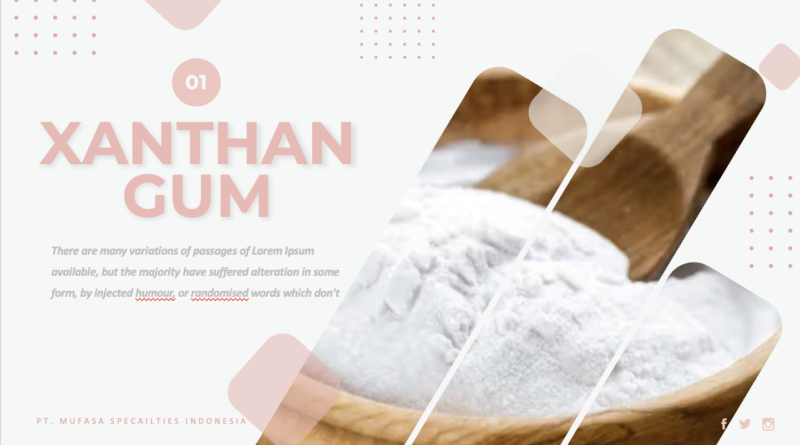Supplier Xanthan Gum
Xanthan gum is a widely used biopolymer known for its exceptional rheological properties. While many primarily recognize it for applications in food, pharmaceuticals, and cosmetics, its role in the construction industry continues to grow. The bacterium Xanthomonas campestris ferments carbohydrates to produce xanthan gum, which serves as an effective thickening, stabilizing, and water-retention agent. Therefore, this document explores the various aspects of xanthan gum in construction, highlighting its benefits, applications, and market trends, including insights into Supplier Xanthan Gum availability.
Properties of Xanthan Gum in Construction
Xanthan gum exhibits unique properties that make it an ideal additive in construction materials. First and foremost, it provides:
- High Viscosity: It enhances the viscosity of cementitious and gypsum-based formulations, making them easier to work with.
- Water Retention: This reduces water loss in mortar and concrete, thereby improving workability and durability, which is essential for long-term stability.
- Shear-Thinning Behavior: It allows easy pumping and application without compromising structural integrity, making construction more efficient.
- Stability Across pH Levels: It works efficiently across acidic and alkaline conditions, making it suitable for various formulations in different environments.
- Compatibility with Other Additives: Notably, it synergizes with other construction chemicals to improve performance, ensuring optimal results in different mixtures.
Applications in the Construction Industry
1. Cement and Concrete Formulations
Construction professionals use xanthan gum to enhance the properties of cementitious materials by improving viscosity, preventing segregation, and reducing water permeability. Consequently, it aids in:
- Increasing durability and crack resistance, which extends the lifespan of structures.
- Enhancing adhesion to various substrates, making applications more effective.
- Facilitating smooth application and finishing, ensuring a high-quality end product.
2. Tile Adhesives and Grouts
In tile adhesives, xanthan gum functions as a stabilizer and water retention agent. This ensures a uniform consistency, prevents sagging, and prolongs open time for tile adjustments. As a result, workers can apply tiles more efficiently, reducing installation errors and improving the overall process.
3. Self-Leveling Compounds
For self-leveling flooring systems, xanthan gum provides:
- Controlled fluidity without excessive water content, which is crucial for maintaining quality and avoiding inconsistencies.
- Improved spreadability and uniform surface leveling, allowing workers to achieve a smooth and even finish.
- Reduced shrinkage and cracking post-application, ultimately improving durability and ensuring long-term performance.
4. Plaster and Gypsum-Based Products
Xanthan gum enhances the workability of plaster and gypsum applications by:
- Preventing rapid water loss and, at the same time, enhancing setting time, leading to better structural integrity.
- Improving adhesion and spreadability, making applications more seamless and efficient.
- Ensuring consistent performance under different climatic conditions, thus making it a reliable additive for various environmental scenarios.
5. Paints and Coatings
Architects and contractors use xanthan gum as a stabilizer in architectural coatings, ensuring uniform pigment dispersion and preventing sedimentation. Consequently, this leads to:
- Improved coating thickness control, resulting in a more uniform and aesthetically pleasing finish.
- Better resistance to sagging and dripping, reducing material waste and improving application efficiency.
- Enhanced durability of paint films, which contributes to the longevity of the final product, making it more cost-effective in the long run.
Advantages of Using Xanthan Gum in Construction
1. Cost-Effectiveness
Although xanthan gum costs more than synthetic additives, its superior performance allows construction professionals to reduce overall material consumption. Therefore, it remains cost-effective in the long run, as fewer resources are wasted, and overall efficiency improves.
2. Eco-Friendly and Sustainable
As a biodegradable and non-toxic polymer, xanthan gum aligns with the growing trend of sustainable construction practices. In particular, it reduces reliance on petrochemical-based additives and enhances the environmental profile of construction materials, making projects more sustainable and environmentally responsible.
3. Enhanced Workability and Performance
Its ability to control viscosity and improve cohesion leads to better handling and application of construction materials. Consequently, construction workers can complete projects more smoothly with better-finished products, leading to higher customer satisfaction and improved efficiency on-site.
Supplier Xanthan Gum: Market Trends and Availability
The increasing demand for xanthan gum in the construction industry has prompted more suppliers to specialize in industrial-grade formulations. Moreover, leading manufacturers and Supplier Xanthan Gum companies provide customized solutions tailored to specific construction needs, ensuring that professionals can access the most effective products for their applications.
In fact, the market continues to grow due to several key factors:
- The widespread adoption of eco-friendly additives, which is becoming a priority worldwide as sustainability concerns increase.
- Rising investments in infrastructure projects, further driving the demand for xanthan gum and other high-performance additives.
- Stringent regulations promoting sustainable construction practices, which necessitate the use of environmentally friendly additives and encourage innovation in material formulations.
Conclusion
Xanthan gum continues to transform the construction industry by enhancing the performance, durability, and sustainability of various building materials. Furthermore, with its exceptional properties and growing availability from leading Supplier Xanthan Gum companies, it plays a crucial role in modern construction practices. Additionally, continuous innovation and market expansion will further drive its adoption, making it an indispensable component in the industry. As construction professionals continue to seek efficient, high-quality, and sustainable solutions, xanthan gum stands out as a key ingredient that enhances material performance while aligning with global environmental goals.

